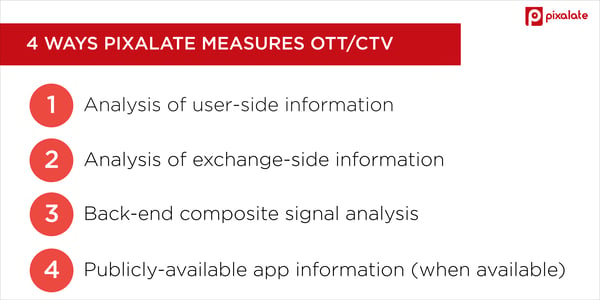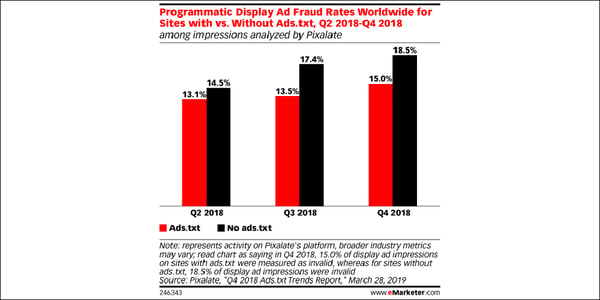
This week's review of ad fraud and quality in the digital advertising space.

Pixalate continues its SSAI blog series with a comprehensive overview of how Pixalate approaches invalid SSAI measurement. This post reviews:

AdColony, the mobile performance marketplace, this week announced that after an extensive vetting process, it has chosen Pixalate as its partner for prevention of digital ad fraud, specifically in mobile app environments. Learn more.

"Advertisers will lose $42 billion of ad spend around the world in 2019 due to fraud across online, mobile and in-app channels, according to a new study from Juniper Research," reported Marketing Dive. "This figure represents a 21% increase from the reported $35 billion lost to advertising fraud in 2018."

eMarketer overviews the state of ad fraud in five charts, ranging from what advertisers think of ad fraud (agency professionals say it's the No. 1 threat) to solutions like ads.txt. "Per Q4 2018 Pixalate estimates, websites that had adopted ads.txt had display ad fraud rates that were 3.5 percentage points lower than websites that hadn't implemented ads.txt," wrote eMarketer.
BuzzFeed News has reported than VidMate, an Android app that allows users to download videos from YouTube and other platforms, "has been displaying hidden ads, secretly subscribing people to paid services, and draining users’ mobile data."
*By entering your email address and clicking Subscribe, you are agreeing to our Terms of Use and Privacy Policy.
These Stories on Weekly Recaps
*By entering your email address and clicking Subscribe, you are agreeing to our Terms of Use and Privacy Policy.

Disclaimer: The content of this page reflects Pixalate’s opinions with respect to the factors that Pixalate believes can be useful to the digital media industry. Any proprietary data shared is grounded in Pixalate’s proprietary technology and analytics, which Pixalate is continuously evaluating and updating. Any references to outside sources should not be construed as endorsements. Pixalate’s opinions are just that - opinion, not facts or guarantees.
Per the MRC, “'Fraud' is not intended to represent fraud as defined in various laws, statutes and ordinances or as conventionally used in U.S. Court or other legal proceedings, but rather a custom definition strictly for advertising measurement purposes. Also per the MRC, “‘Invalid Traffic’ is defined generally as traffic that does not meet certain ad serving quality or completeness criteria, or otherwise does not represent legitimate ad traffic that should be included in measurement counts. Among the reasons why ad traffic may be deemed invalid is it is a result of non-human traffic (spiders, bots, etc.), or activity designed to produce fraudulent traffic.”

